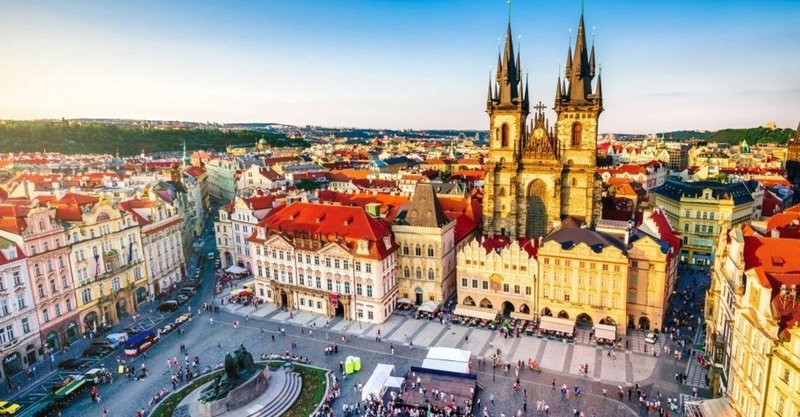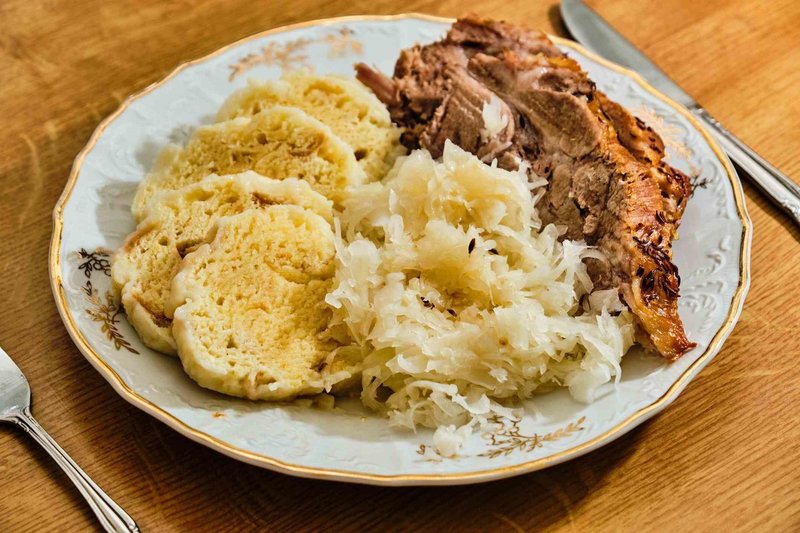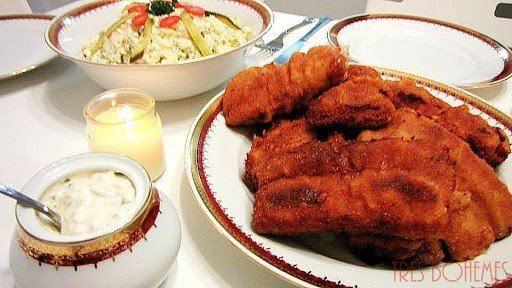
CZECH CULTURE:
The Czech nation has a unique culture. Its position in the heart of Europe has invited influences from all around the world. Czechs have been influenced by western European political, economic, and social norms.
FOOD:
The traditional Czech food is quite heavy, with meat, potatoes, and dumplings and the use of animal fats, butter, and cream. Soups are also an important part of the meal. Potato and tripe soup are favorites, as well as beef or chicken broth with tiny liver or marrow dumplings. The most used vegetables are carrots, peas, and cabbage. Salads were eaten only seasonally until recent years.
Czechs have also always enjoyed sweets. The most common are fruit dumplings made with plums or, in winter, preserved apricots, served with grated farmer cheese and bread crumbs browned in butter, with sugar on top. Dumplings are also served as a meal. Popular sweet baked goods include buchty (sing. buchta ), small, roughly buns with jam.
The national drink is beer, and is called pivo. Some good domestic wines are also produced in Moravia. The domestic plum brandy is called slivovice (slivovitz)

FOOD FOR SPECIAL OCCASIONS:
A typical Sunday dinner menu is the svíčková, known in English by the German name sauerbraten. It is fillet of beef put in vinegar and spices before roasting, served with a rich sauce and almost always eaten together with dumplings. Also popular for special meals is roast duck, pork, or goose with dumplings and sauerkraut. On Christmas Eve, almost everyone eats the traditional breaded and fried carp, and on Christmas Day, roast turkey.

RELIGION:
Christianity arrived in the Czech Republic during the ninth century by missionaries from Germany and the Byzantine Empire. They arrived in 863, invited by Rostislav, ruler of the Great Moravian Empire, made the first Slavic writing system, and they published parts of the Bible in a Slavic language that was understood by everyone. The Magyars became stronger in the 9th century. Because of that, Roman Catholic missionaries were living in the area and Latin had become the language used for religious celebrations. Now there are many Catholics and many Orthodox, and only 1% of the people don't believe in anything.
UVIDIME AND MOZNA:
These words, that can be translated as “We will see,” and “Maybe,” mean no. If asked to go somewhere you don’t want to go, by changing to the first-person plural and in the future, will give you the opportunity of not doing something. If you really don’t want to do something, use the words: “no, uvidime, uvidime, no, mozna, mozna.” It’s a sure “No”. This improves the possibility that you aren’t going to come and it will not be your fault.
NO SHOES INSIDE:
Czechs believe shoes are for outside. The outside is dirty, the inside is clean. As you stand outside a door, you’ll see a few or many shoes by the door. It is also bad to go without having the feet covered when inside, but usually people are given a pair of sandals.
NA HOUBY (MUSHROOM-PICKING)
In the Czech Republic mushroom-picking is a national sport.
